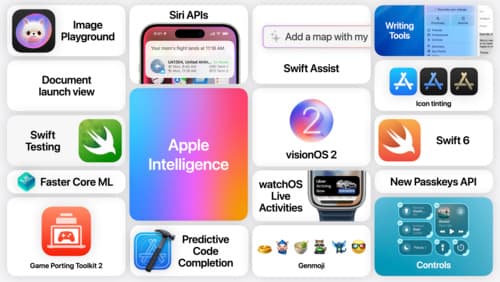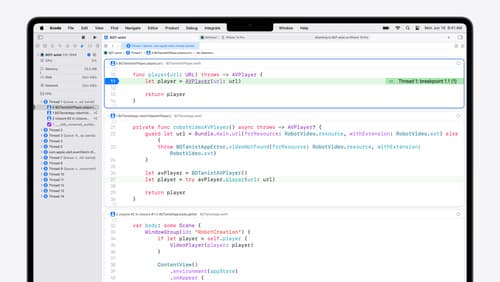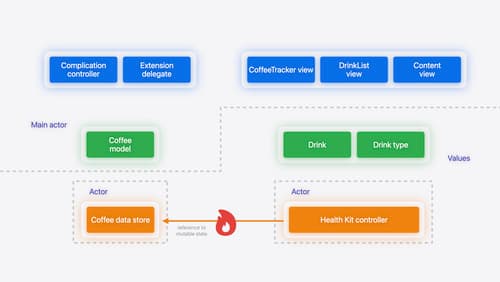how do you effectively use Xcode's optimization opportunities?
Asked on 2024-07-30
1 search
To effectively use Xcode's optimization opportunities, you can leverage several features and best practices highlighted in various WWDC sessions:
-
Swift Optimizer:
- Swift has a powerful optimizer that can eliminate many performance issues. However, the way you write your code can significantly impact the optimizer's effectiveness. Regularly monitor performance and identify hotspots to measure and automate these measurements as part of your development process. This helps in identifying regressions and optimizing code effectively (Explore Swift performance).
-
Whole Module Optimization:
- Enable whole module optimization to reduce overhead by allowing more inlining. This can help in reducing the performance cost associated with automatic retain and release calls (Analyze heap memory).
-
Explicit Modules:
- Xcode 16 introduces explicit modules, which provide improved parallelism, better diagnostics, and faster debugging. For Swift, you need to opt-in by enabling explicitly built modules in the build settings (What’s new in Xcode 16).
-
Profiling and Instruments:
- Use Instruments to get detailed performance insights. Profiling your app regularly can help identify issues such as excessive disk writes, slow app launches, and main thread hangs. The flame graph in Instruments is a visual way to see call stacks and find performance issues (What’s new in Xcode 16).
-
Generics and Structs:
- Profile and look for generics that may need explicit specialization. Ensure that your most copied structs have simple fields to avoid expensive struct copies. Minimize the use of reference types, copy-on-write types, and uses of
Any(Analyze heap memory).
- Profile and look for generics that may need explicit specialization. Ensure that your most copied structs have simple fields to avoid expensive struct copies. Minimize the use of reference types, copy-on-write types, and uses of
-
Swift Assist and Code Completion:
- Xcode 16 includes a new code completion engine powered by a model specifically trained for Swift and Apple SDKs. This engine can predict the code you need, using your project symbols to customize suggestions, which can help in writing optimized code faster (Platforms State of the Union).
By following these practices and utilizing the tools provided in Xcode 16, you can effectively optimize your code and improve the performance of your applications.

Platforms State of the Union 5-Minute Recap
Watch a quick recap of the newest advancements on Apple platforms.

What’s new in Xcode 16
Discover the latest productivity and performance improvements in Xcode 16. Learn about enhancements to code completion, diagnostics, and Xcode Previews. Find out more about updates in builds and explore improvements in debugging and Instruments.

Migrate your app to Swift 6
Experience Swift 6 migration in action as we update an existing sample app. Learn how to migrate incrementally, module by module, and how the compiler helps you identify code that’s at risk of data races. Discover different techniques for ensuring clear isolation boundaries and eliminating concurrent access to shared mutable state.
